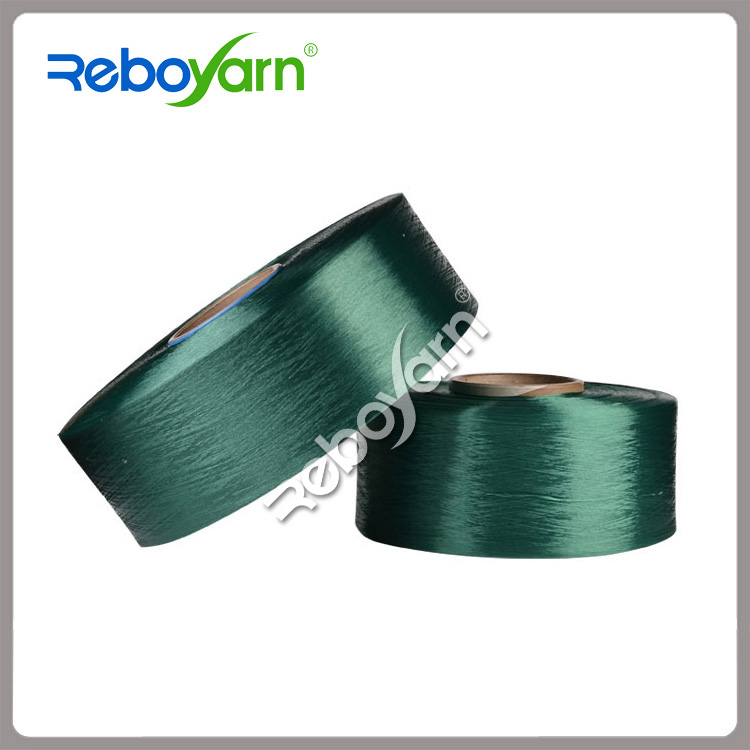How sustainable is recycled polyester yarn?
2023-10-18
Recycled polyester yarn is generally considered more sustainable than traditional virgin polyester because it helps reduce the demand for new fossil fuel-based resources and diverts plastic waste from landfills. However, its overall sustainability depends on various factors, including the source of the recycled material, the manufacturing process, and its end use. Here are some considerations regarding the sustainability of recycled polyester yarn:
1. Resource Conservation:
Recycled polyester yarn uses discarded plastic bottles or other polyester products as its raw material, reducing the need for virgin petroleum-based resources.
By reusing existing materials, the process conserves energy, reduces greenhouse gas emissions, and minimizes the environmental impact of extracting and processing raw materials.
2. Waste Reduction:
The use of recycled materials helps divert plastic waste from landfills and oceans, contributing to waste reduction and addressing the issue of plastic pollution.

3. Energy and Water Savings:
The production of recycled polyester yarn typically consumes less energy and water compared to producing virgin polyester, since the recycling process eliminates the need for the entire polymerization step.
4. Reduced Emissions:
The production of recycled polyester yarn generates fewer greenhouse gas emissions compared to virgin polyester production, as it doesn't involve the extraction and processing of crude oil.
5. Chemical Use:
While recycled polyester manufacturing generally involves fewer chemicals compared to the production of virgin polyester, some chemical processes are still required, especially during cleaning and polymerization.
6. Process Innovations:
Some manufacturers are adopting more sustainable practices, such as using low-impact dyes, reducing water consumption during dyeing, and improving energy efficiency in the manufacturing process.
7. Post-Consumer vs. Post-Industrial Recycled Material:
Post-consumer recycled polyester uses plastic bottles and other used products, directly addressing waste issues.
Post-industrial recycled polyester uses manufacturing waste from polyester production, which can also contribute to waste reduction.
8. Product Longevity:
The durability and longevity of products made from recycled polyester yarn can extend their lifespan, reducing the need for frequent replacements.
9. Circular Economy:
Recycled polyester supports the concept of a circular economy by promoting the reuse of materials and reducing the dependence on finite resources.
While recycled polyester yarn offers numerous sustainability benefits, it's important to recognize that it's not without challenges. For instance, the recycling process itself requires energy and can produce emissions, and some concerns exist regarding microfiber shedding during the use and washing of polyester-based textiles. To make the most sustainable choice, consumers and businesses can consider opting for certified recycled polyester yarn, researching the practices of manufacturers, and supporting initiatives that promote responsible recycling and waste reduction.


